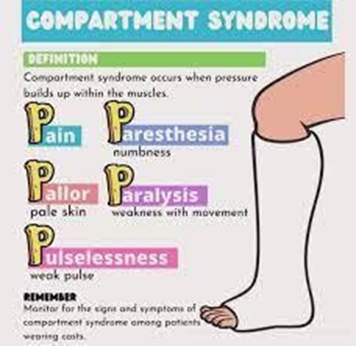Which is the most common complication expected in clients with type 1 diabetes Mellitus?
None of the above
Patient is at risk to forms a cluster of metabolic dysregulations including insulin resistance, atherogenic dyslipidemia, central obesity, and hypertension. Patient may present with high blood pressure, central obesity, high triglycerides and
low HDL
Patient who is at risk may be due to an absolute or relative insulin deficiency or from a decreased response of the tissue to the circulating insulin (insulin resistance). Resulting in glycogenolysis, gluconeogenesis, and a decreased uptake of glucose by the peripheral tissue which make the patient very thirsty, experiencing altered mental status, high serum osmolarity and high blood glucose level.
The Correct Answer is D
Choice A rationale: This is incorrect.
Choice B rationale: This describes metabolic syndrome, a collection of risk factors, but not a direct complication of type 1 diabetes.
Choice C rationale: This describes hyperosmolar hyperglycemic state, which is more characteristic of severe hyperglycemia but not the most common complication in type 1 diabetes.
Choice D rationale: Diabetic ketoacidosis (DKA) is a frequent and serious complication in type 1 diabetes, characterized by ketone formation due to the absence of insulin, leading to metabolic acidosis and potential life-threatening symptoms.
Nursing Test Bank
Naxlex Comprehensive Predictor Exams
Related Questions
Correct Answer is D
Explanation
Choice A rationale: These are symptoms of advance renal failure. Stomatitis and diarrhea are signs of uremia, which is the accumulation of waste products in the blood.
Choice B rationale: Dyspnea and anuria are signs of fluid overload and kidney shutdown and indicate advanced renal failure.
Choice C rationale: Confusion and vomiting are signs of acidosis and electrolyte disturbances and occur in advanced stages of renal failure.
Choice D rationale: One of the early symptoms of renal insufficiency is nocturia, which is the need to urinate frequently at night. This occurs because the kidneys are unable to concentrate urine during the day and produce more urine at night. Another early symptom is oliguria, which is the production of less than 400 mL of urine per day. This occurs because the kidneys are unable to excrete enough urine to maintain fluid balance.
Correct Answer is D
Explanation
Choice A rationale: Tachycardia and petechiae over the chest wall and buccal membranes are signs of fat embolism syndrome, another complication of fractures that occurs when fat globules enter the bloodstream and obstruct pulmonary vessels.
Choice B rationale: Positive Homan's sign with calf tenderness and warmth are signs of deep vein thrombosis, a condition that can occur after prolonged immobilization or surgery.
Choice C rationale: Acute cough, cyanosis, and decreased blood pressure are signs of pulmonary embolism, a life-threatening condition that occurs when a blood clot travels to the lungs and blocks blood flow.
Choice D rationale: These are signs of compartment syndrome, which is a serious complication of fractures that occurs when increased pressure within a closed space compromises blood flow and tissue perfusion. Compartment syndrome can lead to ischemia, necrosis, and nerve damage if not treated promptly.

Whether you are a student looking to ace your exams or a practicing nurse seeking to enhance your expertise , our nursing education contents will empower you with the confidence and competence to make a difference in the lives of patients and become a respected leader in the healthcare field.
Visit Naxlex, invest in your future and unlock endless possibilities with our unparalleled nursing education contents today
Report Wrong Answer on the Current Question
Do you disagree with the answer? If yes, what is your expected answer? Explain.
Kindly be descriptive with the issue you are facing.
